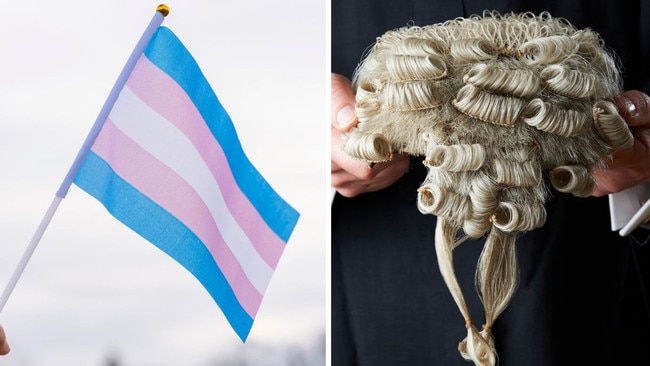Barristers schooled on trans ideology
A guide for NSW barristers includes a glossary of alternative pronouns to male and female – such as ‘xe/xem/xyrs’ – and discourages barristers from using terms such as ‘transitioning’ or ‘transgendered’.

NSW barristers have been instructed to never assume the gender identity of people interacting with the court system, and are being encouraged to “start the conversation” about preferred pronouns with a witness or client in case they feel intimidated to do so themselves.
Three state judges and Sex Discrimination Commissioner Anna Cody last month launched the NSW Bar Association’s LGBTQIA+ Language & Pronouns Guide, which educates barristers on the importance of addressing stakeholders by their appropriate pronouns.
The document also provides a glossary of alternative pronouns to traditional male and female – such as “xe/xem/xyrs” or “sie/ze/hir/hirs” – and discourages barristers from using terms such as “transitioning” or “transgendered”.
“You should not ask: What pronoun do you prefer?” the guide, backed by the bar association’s LGBTQIA+ Advocate for Change Mark Seymour SC, reads, adding: “This is because it is not a question of preference.”
The two-page manual features a list of common terms for barristers to familiarise themselves with, including “brotherboy” – a descriptor used by Aboriginal Australians who have “a male spirit and take masculine roles within the community”.
It also defines acronyms “AFAB”, “PFAB” and “DFAB” – assigned female at birth, presumed female at birth and designated female at birth – and “AMAB”, “PMAB” and “DMAB” – assumed male at birth, presumed male at birth and designated male at birth.
The revelations come amid reporting in The Australian of concerns held by students, academics and deans that political ideology is infiltrating university law schools.
Macquarie University last week ordered a review of its law school practices after students said their course had become hijacked by beliefs that were damaging to their education, with some facing the threat of failing one part of an exam if they performed an underwhelming acknowledgment of country.
Monash University’s PhD law course, which forces students to critique their thesis based on Marxist, feminist, critical race and queer theory, has also been criticised, with one student claiming the approach was “destroying legal academia”.
The NSW Bar guide – launched by Supreme Court judge Richard Weinstein, Land and Environment Court judge Rachel Peppe and District Court judge Warwick Hunt – encourages barristers to take added steps to break down the stigma around gender identity.
“By using pronoun tags in your email signature, wearing a LGBTQIA+ badge/lanyard or being informed about pronouns, you can help people feel comfortable discussing their pronouns with you,” the guide reads.
“Both in and outside of the courtroom, you are likely to be the person best placed to start the conversation. Judicial officers and legal practitioners are seen as authority figures in legal proceedings, and people may be intimidated (or think it is inappropriate) to initiate a conversation about pronouns themselves.”
It is OK to make mistakes, the guide says, but barristers are urged to “apologise and correct your error, and move on”.
The guide says coming into contact with the legal system “can be an intimidating experience” and it is up to practitioners and judges to ensure members of the community feel comfortable.
“Using inclusive language, inside the courtroom and outside, sends a message that people engaging with the legal profession, in whatever capacity, are respected and being heard,” it reads.
“Inclusive language removes a barrier to LGBTQIA+ communities’ effective participation in the legal system.”
Lawyers should not assume that a person identifies with their biological sex, the guide says.
“When it comes to gender identity, you should not assume that a person identifies with the sex or gender they were assigned at birth.
“Where a person, such as a legal practitioner or witness, feels uncomfortable in a court environment or excluded from the proceedings, the quality of their advocacy, evidence or ability to participate in the justice system may be compromised. It is critical that all participants be addressed according to gender identity.”




To join the conversation, please log in. Don't have an account? Register
Join the conversation, you are commenting as Logout